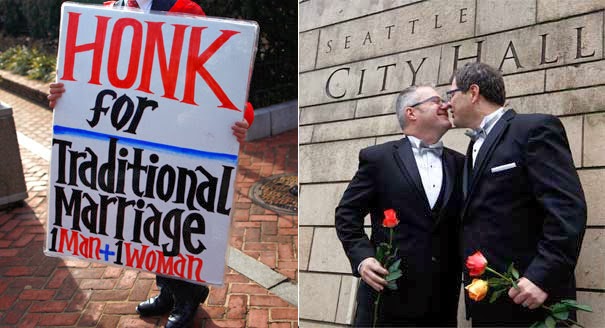Surrounded by Broncos fans, proudly displaying their orange jerseys at an after-church Super Bowl party, the long-awaited breakthrough for this Seahawks fan came true.
I kept my cheering subdued. But my smile was big.
I had to wait until I was 60 years old to see this -- a long way removed from a summer back in 1976, on the campus of my alma mater, Eastern Washington University, when the NFL's newest expansion team arrived for its inaugural training camp.

Jack Patera was the first coach, a big, profane and somewhat arrogant man who presided over a bunch of pros past their prime and second-tier rookies. But there were a couple players who stood out right away, both for their enthusiasm and skills . . . and quiet faith.
Jim Zorn, who had briefly been on the Dallas Cowboys roster the season before as an undrafted free agent, was (is) an unapologetic, born again Christian, and his favorite target, Steve Largent, also was a believer. Along with other Christians on the team, they held prayer meetings and Bible studies together -- but there was no preaching or grandstanding, as some later would accuse Tim Tebow of doing (fairly, or not).
Zorn was outgoing, positive, and a scrambler who could zip a left-handed bullet off a rollout like no one I had ever seen then, or since. He ran the Seattle backfield for seven seasons before his star declined, but he never seemed to let it get him down.
I interviewed him again a few years ago, while he was an assistant coach at a small college (later, he would coach quarterbacks for Seattle, briefly, and make a bid as head coach for the ill-fated Redskins).
Largent went on to be a Hall of Fame receiver. He and Zorn would be the first two inductees to Seattle's "Ring of Honor."
For that first season and the next two, I worked with and for the Seahawks as a stringer. I'd do feature articles on players for small dailies who could not afford sending staff of their own. After each practice, I would gather injury reports and quotes on standouts, etc., from Patera and his assistants and call them in to the PR department.
For a 21-year-old small town weekly newspaper editor, the money was good -- and the experience gave me a taste of what I would experience a few years later as an AP sportswriter.
That first season, 2-12 for the 'Hawks, was a tough one. A lot of routs, some spells showing the future brilliance of the Zorn-to-Largent connection.
So, this past Sunday, I'll bet Zorn was smiling. A fellow believer, Russell Wilson, was holding the Lombardi Trophy.
It took nearly 40 years for the dream to come true, but Jim had to be happy for the team where a kid from Cal Poly-Pomona, initially dismissed by the sports experts of his time, became an NFL star.
What both of these quarterback will share, long after the Super Bowl memories fade, will be their faith and humility.
Those qualities are eternal.










